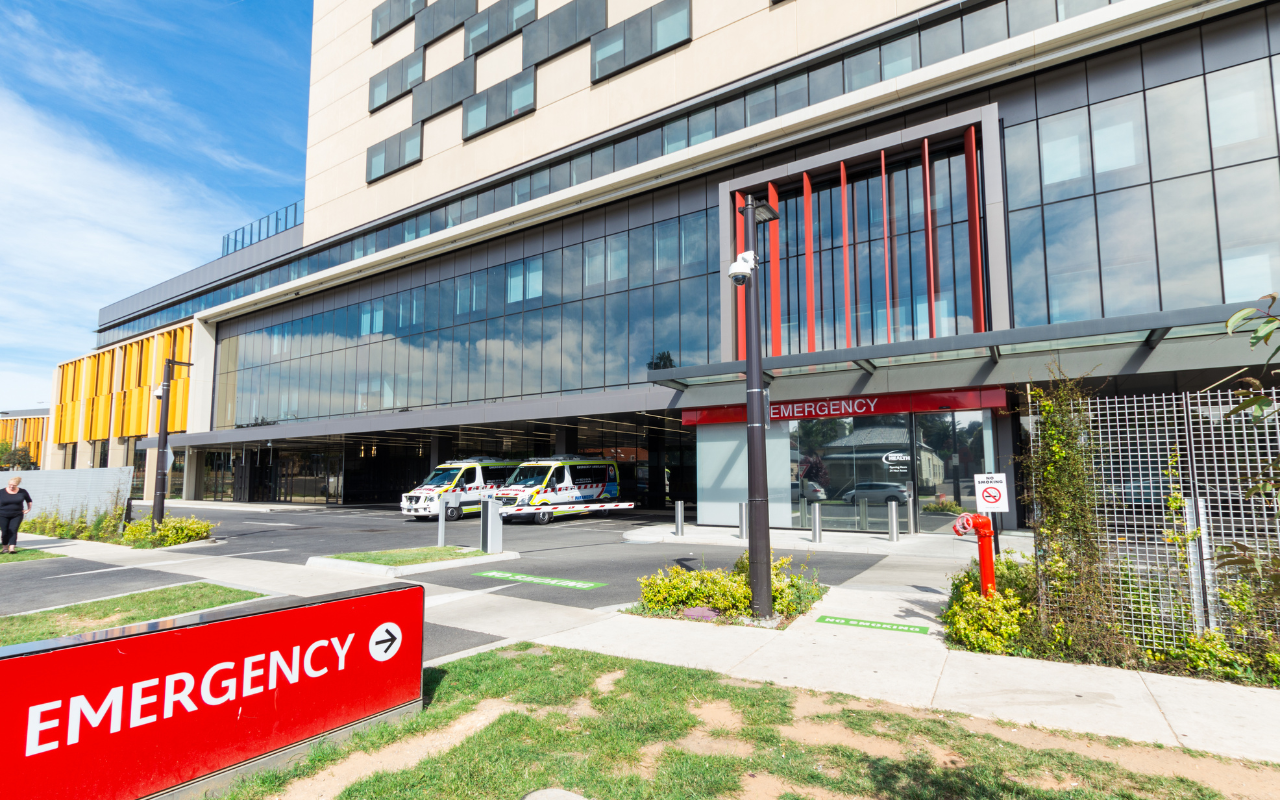Rural and regional Australia continues to suffer reduced access to general surgery and emergency care, prompting calls for greater focus on retaining and upskilling rural health care workforces.
A lack of surgeons and emergency physicians in regional Australia has prompted one college to encourage city-based doctors to move to rural areas for the “fantastic opportunities” and to practise at the top of their scope.
The Australasian College for Emergency Medicine (ACEM) President Dr Stephen Gourley, who is based in Alice Springs, has put the call out for metropolitan doctors to consider life outside the city.
“Working in the Northern Territory, or anywhere in Australia outside the cities, is a fantastic opportunity,” he said.
“I really enjoy it and I encourage others to consider a career in health outside of the city. The variety of medicine you can practise is vast, you work at the top of your scope, and there are lots of opportunities for career development.”
Due to a lack of emergency physicians in many areas, Dr Gourley has called on the Australian Government to extend funding for a vital program that trains regional nurses and paramedics in emergency care.

Regional communities are also suffering from a lack of general surgery services, with a recent Narrative Review published in the Medical Journal of Australia highlighting the disparity in access to general surgeons between rural and metropolitan areas.
The review, led by researchers from Monash Rural Health, Bendigo Health and Monash University, found that most rural general surgical outcomes achieved comparable results to metropolitan areas, but sustaining the rural general surgical workforce continues to be a challenge.
General surgery is the most common surgical specialty in rural Australia and requires knowledge of the whole field of surgery in order to meet community needs.
“General surgery suffers from urban excess and rural deficit,” Lead author Jessica Paynter and colleagues wrote.
“Rural Australians have an increased burden of surgical disease and fewer surgeons to provide general surgical care compared with metropolitan Australians, and inequity exists in both the ability and timeliness to access general surgical care.”
The authors note that addressing rural workforce shortages requires a multifaceted approach, with focus needed on recruitment, training and retention strategies, evolving models of care, and the provision of multidisciplinary teams.
“Developing a training model that best meets community need has been a long‐standing issue, and a renewed focus on selection, alongside a rurally focused curriculum, may be needed to create a generation of rural general surgeons that provide an extended and broad scope of practice,” the authors concluded.
Meeting the unique needs of our rural populations
The complexities of providing health care in rural and regional Australia were explored recently in InSight+ by Associate Professor Bernadette Ward and Dr Pamela Harvey.
“Health outcome disparities across Australia’s population have been well documented, with differences in the aggregated health status of people living in rural and metropolitan areas regularly highlighted,” they wrote.
“This difference, however, is more complex than just where you live.”
Professor Ward and Dr Harvey argue that a “one size fits all” approach to distributing finite health care resources in regional areas does not account for the diverse and complex needs of these populations.
“Recent discussions about strengthening Medicare highlight one of the fundamental problems with the Australian health care system: the persistent foci on health inputs — more dollars, doctors, nurses, allied health staff, hospitals and services, with minimal reflection of population need and health outcomes,” they wrote.
Professor Ward and Dr Harvey outline a need for different funding streams and models of care to provide a more nuanced approach to regional health care.
“If we keep offering the same solutions to the issue of inequity in health care, why would we expect different outcomes?”
Upskilling for rural emergency care
Recently in Canberra, ACEM President, Dr Stephen Gourley, met with Assistant Minister for Rural and Regional Health, the Hon Emma McBride MP, and other regional Members of Parliament, to discuss the urgent funding needed for the Emergency Medicine Education and Training (EMET) program to continue.
EMET – a partnership between the Australian Government and ACEM – provides education, training and supervision to doctors, nurses and paramedics working in emergency departments and emergency care services in rural and remote areas who are not specifically trained in emergency medical care.
This allows health care workers to be upskilled and supported, on the ground in their communities, to provide this vital care.
Since 2011, more than 200 000 attendees have attended EMET workshops across Australia, and brought their skills back to support their own local communities. To continue beyond 2025, EMET needs the ongoing federal support of $13 million per annum in the 2024–25 federal budget.
“The EMET program empowers local health care workers with the practical skills they need to care for the people that live in their own communities, when they need it the most; and it is critical that this program receives funding to continue,” Dr Gourley said.
Read the Narrative Review in the Medical Journal of Australia.
Subscribe to the free InSight+ weekly newsletter here. It is available to all readers, not just registered medical practitioners.

 more_vert
more_vert